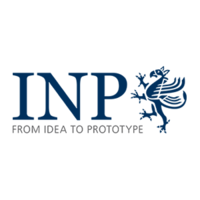Leibniz Institute for Plasma Science and Technology (INP)

The Leibniz Institute for Plasma Science and Technology (INP Greifswald) is the largest non-university institute in the field of low temperature plasmas, their basics and technical applications in Europe. In addition to application-oriented research, INP promotes the development of plasma-assisted processes and products. The institute carries out research and development from idea to prototype. The topics focus on the needs of the market. At present plasmas for materials and energy as well as for environment and health are the focus of interest. Innovative product ideas of the research of INP are transferred by the spin-offs of the institute. INP promotes actively the training and further education of scientific and technical junior staff in the field of low temperature plasma physics in collaboration with universities, research institutions and industry. The institute is organized as a non-profit organization and is a member of the Leibniz Association (www.leibniz-gemeinschaft.de) since its foundation.
Organization
The Leibniz Institute for Plasma Science and Technology (INP) is a research institution of the Leibniz Association and has the legal form of a registered association. INP is an organizationally and legally independent research institute with the following constituent bodies:
- general assembly,
- board of trustees and
- scientific advisory council.
On the basis of parity, it is jointly financed by its host state - Mecklenburg-Western Pomerania - and the German federal government. The functional responsibility lies with the Ministry for Education, Science and Culture at host-state level and with the Federal Ministry for Education and Research at federal level.
The management of the institute, the board, consists of three people with one director. Since 2003 INP is led by Prof. Dr. Klaus-Dieter Weltmann.
Facts and Figures
Building
Since 1999 INP Greifswald is located in Felix-Hausdorff-Str. 2 in Greifswald. It is in the midst of the scientific and medical campus of the University of Greifswald. The main building has a floor space of about 3.700 square metres. It is equipped with 130 workstations and 41 laboratories. The extension building closing the gap between INP and Biotechnikum Greifswald was opened in 2010. There, mainly the laboratories and offices of the centre for innovation competence (ZIK) plasmatis (http://www.plasmatis.de/index_en.html are housed. 30 workstations and eight laboratories are located on 540 square metres.
Staff
INP has about 195 employees at present. The scientific disciplines include physics, chemistry, pharmacy and biology.
Budget
INP had a total budget of about 20.2 million euro in 2013. 10.3 million euro of that are competitive third-party funds raised from federal and state ministries, the German Research Foundation (DFG), the European Union and industry.